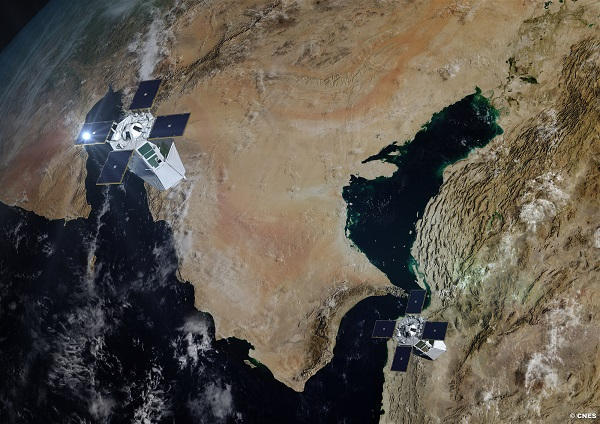
Due to the new difficulties of Ariane 6, the placement of the French military satellite CSO-3 in orbit will still be awaited …
If all goes as planned, the full operational capability of CSO’s three satellite constellation [Composante Spatiale Optique]From MUSIS [Multinational Space-based Imaging System for Surveillance, reconnaissance and observation]was supposed to be pronounced in 2022, the first two devices [CSO-1 et CSO-2] After it was put into orbit in 2018 and 2020 respectively by a Russian Soyuz launcher from the Guyana Space Center [CSG] Kourou, sponsored by Arianespace.
It is placed in the same phased sun-synchronous orbit as CSO-1 [à 800 km d’altitude] In order to increase the frequency of firing on areas of interest, the launch of the CSO-3 by an Ariane 6 rocket was supposed to take place in 2021. Only, due to “unexpected technical difficulties”, exacerbated by the Covid-19 epidemic, Arianespace was forced to postpone the start The new launcher would run for two years, which was then scheduled for the second quarter of 2022.
The result: in order to remove any uncertainty, the Ministry of the Armed Forces decided, in December 2021, to use the Soyuz launcher again to put the CSO-3 into orbit. Russia’s invasion of Ukraine forced him to revise his copy … Moscow stopped all space cooperation with the West, in response to the economic sanctions imposed by the latter.
However, there was nothing wrong with this setback … The first flight of the Ariane 6 should take place by the end of this year, after a final test campaign. Or so we thought … because, on October 19, following a meeting between CNES, ArianeGroup, Arianespace and the European Space Agency, it was announced that the commissioning of the new launcher could not take place by the fourth quarter of 2023. Consequently, CSO-3 will not Run it by then…unless another launcher is used. Like the American SpaceX Falcon9?
In March, the Ministry of the Armed Forces did not express concern about the delay in putting the CSO-3 into orbit. He emphasized that “the induced delay would be about a year but there would be no short-term operational impact,” specifying that CSO-1 and CSO-2 had already submitted a very large number of images.
Only, in the medium term, it is likely that it will turn out differently. During a parliamentary hearing in July, he was the second-in-command in the Air and Space Force [AAE]General Frederic Barrezo emphasized the importance of CSO-3.
“We have also seen the need to reconsider,” he said, referring to the role the CSO-3 should play for the Military Intelligence Directorate. [DRM]. In addition, this delay will also have consequences for the IRIS program, which has been called to take over from the CSO constellation. Thus, the launch of the CSO3 satellite has been postponed by one year. Thus, the launch of its successor, IRIS, is also likely to be delayed by a year.

“Unapologetic pop culture trailblazer. Freelance troublemaker. Food guru. Alcohol fanatic. Gamer. Explorer. Thinker.”

